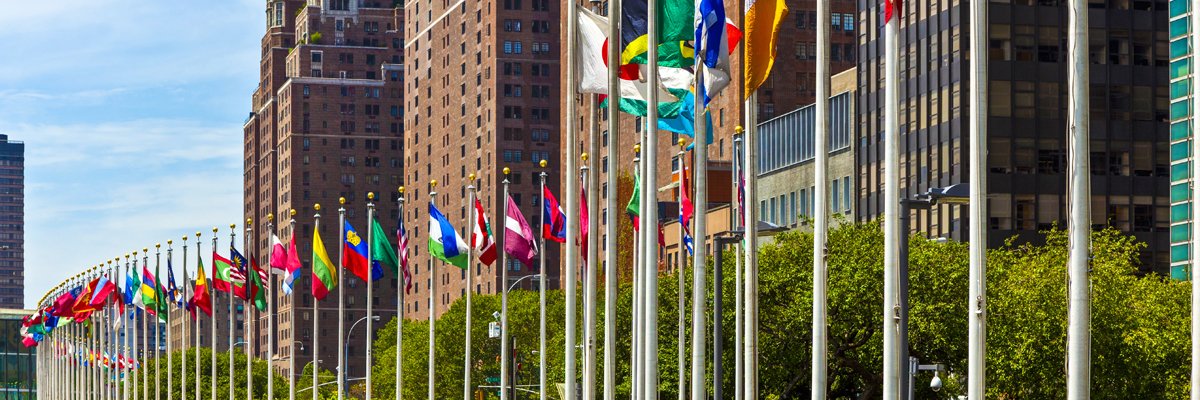Tech News
UN body urges ‘globally inclusive and distributed’ AI governance

A United Nations (UN) advisory body on artificial intelligence (AI) is calling for global collaboration in creating a comprehensive governance framework for the technology.
Established in October 2023 to study international AI governance, the UN’s High-level Advisory Body on AI has released a report outlining its strategy for addressing AI-related risks and promoting global sharing of the technology’s potential.
The executive summary stated, “The need for global governance is undeniable. AI’s resources, from essential minerals to training data, are sourced globally. The deployment of general-purpose AI across borders leads to diverse global applications. The rapid advancement of AI concentrates power and wealth on a global scale, with geopolitical and geo-economic ramifications.
“Furthermore, no one fully comprehends all aspects of AI to have complete control over its outcomes or predict its evolution. Decision makers are not held accountable for utilizing systems they do not fully grasp. The repercussions and global impacts of such decisions are also likely to be widespread.”
The report emphasized that while national governments and regional organizations play a crucial role in AI regulation, the global nature of the technology necessitates a unified approach.
As a result, the Advisory Body has put forth several recommendations to address existing gaps in AI governance and is urging all governments and stakeholders to promote the development and protection of human rights.
These recommendations include establishing an independent international scientific panel on AI composed of diverse experts in the field, organizing a bi-annual intergovernmental dialogue on AI governance, creating an “AI standards panel” to define evaluation criteria for AI systems, setting up a global fund for AI to bridge the technology gap, and developing a global AI data framework for data stewardship.
Wendy Hall, a regius professor of computer science at the University of Southampton and the lone British expert on the Advisory Body, highlighted the inadequacy of current global AI governance efforts.
She stated, “AI advancements are already impacting various sectors such as health, energy, food, and education. AI must be allowed to progress for the betterment of humanity, but without proper governance, it could have detrimental consequences. We urgently require a global strategy to tackle the challenges of AI and ensure its benefits are shared by all.”
In April 2024, a UN draft resolution advocating for AI use in sustainable development and human rights protection garnered support from over 120 member states.
AI governance is not a global conversation
During the World Economic Forum in Davos in January 2024, UN Secretary-General António Guterres criticized technology companies and governments for prioritizing their interests in AI development without regard for human rights and privacy, likening it to the risks posed by the climate crisis.
Guterres urged business and political leaders to regulate AI development and reform the international system to address global challenges effectively.
The AI Advisory Body’s report pointed out the lack of truly global AI governance discussions despite numerous frameworks and principles adopted by governments and organizations. It highlighted the exclusion of many countries from these conversations, emphasizing the need for diverse voices in AI governance decisions.
To enhance international cooperation on AI governance, the Advisory Body proposed establishing an AI office within the UN Secretariat to coordinate efforts efficiently.
-

 Destination8 months ago
Destination8 months agoSingapore Airlines CEO set to join board of Air India, BA News, BA
-

 Breaking News10 months ago
Breaking News10 months agoCroatia to reintroduce compulsory military draft as regional tensions soar
-

 Gadgets4 months ago
Gadgets4 months agoSupernatural Season 16 Revival News, Cast, Plot and Release Date
-

 Tech News1 year ago
Tech News1 year agoBangladeshi police agents accused of selling citizens’ personal information on Telegram
-

 Productivity12 months ago
Productivity12 months agoHow Your Contact Center Can Become A Customer Engagement Center
-

 Gadgets4 weeks ago
Gadgets4 weeks agoFallout Season 2 Potential Release Date, Cast, Plot and News
-

 Breaking News10 months ago
Breaking News10 months agoBangladesh crisis: Refaat Ahmed sworn in as Bangladesh’s new chief justice
-

 Toys12 months ago
Toys12 months ago15 of the Best Trike & Tricycles Mums Recommend























